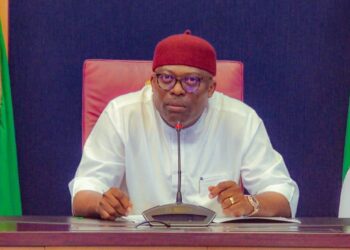In August 2023, the Minister of the Federal Capital Territory, FCT, Nyesom Wike, said that his ministry will stop open grazing because he cannot allow cows inside Abuja city.
Again, in March 2024, during a meeting with the Belgian Ambassador to Nigeria, Daniel Bertrand, the Minister said that efforts were underway to end the indiscriminate movement of cattle within the city center.
August 23, 2024, marked exactly one year since Mr. Wike made these pronouncements.
An investigation conducted by Daily Post, an online medium over the past 16 months, showed that cows are still grazing in the city.
The online medium which monitored major spots around the city and satellite towns to assess the implementation of the policy, observed open grazing in 16 locations across the city, including Asokoro Extension, Guzape and Airport road, where herders graze their cows on grasses growing on the highway.
Furthermore, it revealed that in August 2024, a large herd of cattle was spotted around the Defence Headquarters, moving majestically in the middle of the road during working hours.
Similarly, the report stated that in September 2024, another herd was spotted very close to the newly constructed residence of the Vice President, opposite the gate of the Office of the Secretary to the Government of the Federation.
It disclosed that there have been similar sightings of cows across the city, despite Wike’s threats and promises as minister.
In an interview with the medium, a resident of the city and a taxi driver, Shefiu Adio, said, “The minister is gradually coming to terms with the ‘politics of cattle’ within the context of Nigeria”.
Mr Adio explained that the conversation around cows has become highly politicised, adding that such an order by the minister is seen as targeting northerners, who are predominantly involved in cattle rearing.
“Wike must understand how delicate the situation is in Nigeria when it comes to cows.
“In Rivers State, that order would have been obeyed without question. However, in Abuja, seen as the capital where everyone is equal, his directive would be seen as an attack against northerners.
“To many residents, these cows are openly referred to as “government children.” Mr Adio said.
Also speaking in an interview, another resident, Umar Ubandawaki, who runs a cattle stand at Deidei Market, expressed optimism that the recent creation of the Ministry of Livestock could lead to more practical solutions.
“Rapid urbanisation is not helping matters. Many Fulani communities have been displaced, and areas that once provided grasses for cows now have estates on them.
“The minister must offer better solutions rather than threats,” Mr Ubandawaki said.
Many herders’ settlements in Katampe, Sabo Lugbe, and other rapidly developing areas have been displaced by developers.
This is not the first time Mr Wike has made pronouncements that were largely ignored.
Some months ago, he ordered the removal of beggars from most parts of the city.
In some instances, they were forcefully removed.
However, the beggars still occupy several places within the FCT.



















